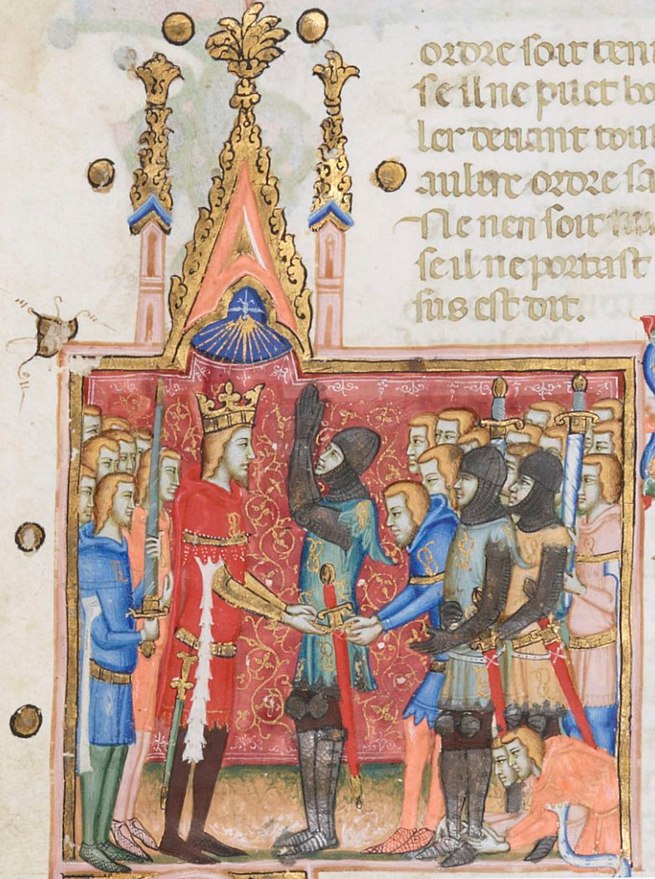
Main Difference
The main difference between Capitalism and Feudalism is that the Capitalism is a economic system based on private ownership of the means of production and the creation of goods or services for profit and Feudalism is a combination of legal and military customs and form of government in medieval Europe
-
Capitalism
Capitalism is an economic system based on the private ownership of the means of production and their operation for profit. Characteristics central to capitalism include private property, capital accumulation, wage labor, voluntary exchange, a price system and competitive markets. In a capitalist market economy, decision-making and investments are determined by every owner of wealth, property or production ability in financial and capital markets, whereas prices and the distribution of goods and services are mainly determined by competition in goods and services markets.Economists, political economists, sociologists and historians have adopted different perspectives in their analyses of capitalism and have recognized various forms of it in practice. These include laissez-faire or free-market capitalism, welfare capitalism and state capitalism. Different forms of capitalism feature varying degrees of free markets, public ownership, obstacles to free competition and state-sanctioned social policies. The degree of competition in markets, the role of intervention and regulation, and the scope of state ownership vary across different models of capitalism. The extent to which different markets are free as well as the rules defining private property are matters of politics and policy. Most existing capitalist economies are mixed economies which combine elements of free markets with state intervention and in some cases economic planning.Market economies have existed under many forms of government and in many different times, places and cultures. Modern capitalist societies—marked by a universalization of money-based social relations, a consistently large and system-wide class of workers who must work for wages, and a capitalist class which owns the means of production—developed in Western Europe in a process that led to the Industrial Revolution. Capitalist systems with varying degrees of direct government intervention have since become dominant in the Western world and continue to spread. Over time, capitalist countries have experienced consistent economic growth and an increase in the standard of living.
Critics of capitalism argue that it establishes power in the hands of a minority capitalist class that exists through the exploitation of the majority working class and their labor; prioritizes profit over social good, natural resources and the environment; and is an engine of inequality, corruption and economic instabilities. Supporters argue that it provides better products and innovation through competition, disperses wealth to all productive people, promotes pluralism and decentralization of power, creates strong economic growth and yields productivity and prosperity that greatly benefit society.
-
Feudalism
Feudalism was a combination of legal, economic, military and cultural customs that flourished in Medieval Europe between the 9th and 15th centuries. Broadly defined, it was a way of structuring society around relationships that were derived from the holding of land in exchange for service or labour.
Although it is derived from the Latin word feodum or feudum (fief), which was used during the Medieval period, the term feudalism and the system which it describes were not conceived of as a formal political system by the people who lived during the Middle Ages. The classic definition, by François-Louis Ganshof (1944), describes a set of reciprocal legal and military obligations which existed among the warrior nobility and revolved around the three key concepts of lords, vassals and fiefs.A broader definition of feudalism, as described by Marc Bloch (1939), includes not only the obligations of the warrior nobility but the obligations of all three estates of the realm: the nobility, the clergy, and the peasantry, all of whom were bound by a system of manorialism; this is sometimes referred to as a “feudal society”. Since the publication of Elizabeth A. R. Brown’s “The Tyranny of a Construct” (1974) and Susan Reynolds’s Fiefs and Vassals (1994), there has been ongoing inconclusive discussion among medieval historians as to whether feudalism is a useful construct for understanding medieval society.
-
Capitalism (noun)
A socio-economic system based on private ownership of resources or capital.
-
Capitalism (noun)
An economic system based on private ownership of the means of production and their operation for profit.
-
Capitalism (noun)
A socio-economic system based on private property rights, including the private ownership of resources or capital, with economic decisions made largely through the operation of a market unregulated by the state.
-
Capitalism (noun)
An economic system based on the abstraction of resources into the form of privately owned capital, with economic decisions made largely through the operation of a market unregulated by the state.
-
Feudalism (noun)
A social system based on personal ownership of resources and personal fealty between a suzerain (lord) and a vassal (subject). Defining characteristics are direct ownership of resources, personal loyalty, and a hierarchical social structure reinforced by religion.
